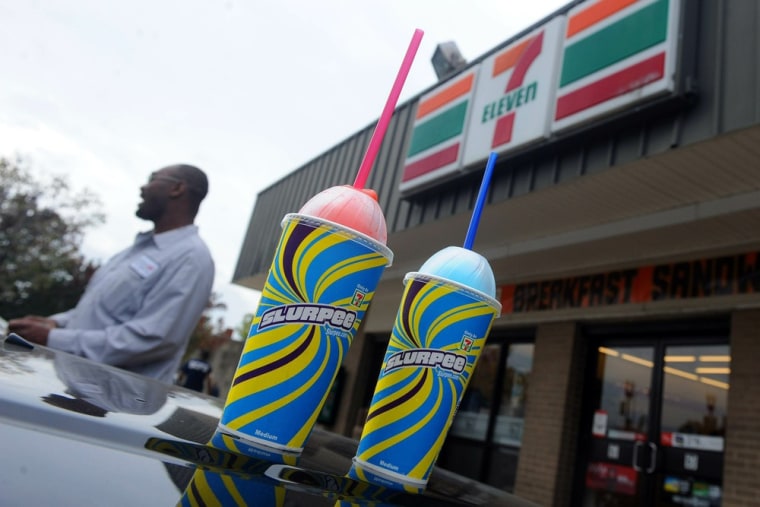Tired of not getting paid what you're worth (or not paid at all) and want to start your own, already-proven gig?
That's the lure of franchising. Pick a brand, add water and a few bucks, and voila, you're an entrepreneur.
Running day-to-day operations and turning a profit is another matter, of course. Success starts with picking the right system to begin with, then rooting out the names that give the best bang for your investment buck. But with roughly 3,500 franchises to choose from, each governed by a Franchise Disclosure Document (FDD) running around 400 pages, where to begin?
Forbes.com slideshow: the top 20 franchises to start
With the help of Robert Bond, publisher of Bond's Franchising Guides and chief executive of the World Franchising Network, a franchise database, Forbes weeded through the 100 most recognized franchise operators and found 20 that delivered the best bang for a franchisee's investment buck.
"One of the reasons people buy a franchise is they have instant credibility," says Bond. "If you are a lesser known franchise, it takes years to get that national recognition."
Bond concedes that big names come with higher startup fees, but the payoff is often worth it. "Because they are big, they are not lusting after franchise fees and royalties," says Bond. Another reason size matters: "The best ones take care of their franchisees," he adds. "A lot of franchisors don't provide value to the franchisee. Unless they do that on a long-term basis, the system is not going to work."
Forbes.com: The top 25 most profitable growth companies in the U.S.
Our methodology took into account four variables: estimated minimum initial investment (including initial fees plus equipment costs); total locations (we wanted at least 50, and more was better); survival rates (measured as the percentage of closings during the previous three-year period to the total number of existing locations — the lower the percentage, the better); and the number of training hours offered to new franchisees measured against the startup cost (the more support, the more comfortable we felt). We tallied each operator's performance on each variable (overall footprint and survival rates carried the most weight) and summed the figures to arrive at our rank-ordered list.
Restaurants dominated the ranks. At No.1: Domino’s Pizza, based in Ann Arbor, Mich. The cheesy stalwart boasts low overhead and an expanded menu, including pasta and sandwiches.
Over 4,500 locations provide instant credibility; Domino's also offers new franchisees a whopping 1,308 hours of training. Average initial investment per store: $253,950.
Forbes.com: 10 celebrity-backed startups
7-Eleven comes in at No. 2, with over 6,200 locations (4,685 franchised). More than a quarter are located in California, so there is room to run. Unlike most franchises, which charge a royalty based on revenue, 7-Eleven takes about half of the franchisee’s profit. Average initial investment: $389,378.
At No. 3 is Kumon North America, which offers Offers after-school tutoring in math and reading, geared mainly towards high school students, based on worksheets designed by founder Toru Kumon. Average initial investment: $90,894.
At No. 11, Liberty Tax Service offers its franchisees a tidy business along with some pretty attractive hours. Franchisees work only four months a year and do not need prior tax-preparation experience; Liberty trains their staffs. Average initial investment: $63,350.
Forbes.com: 12 investments to sell or avoid
There are other variables to consider before plunking down for your own franchise. Marketing expenditures and territory size are two big ones, says Dennis Wieczorek, chair of the franchise practice group at DLA Piper. Royalty fees are big, too, though these are hard to compare as some operators charge a percentage of revenues while others snag a flat monthly fee or something else entirely. (We included royalty rates for each of the 20 franchises in our slide show.)
Potential profitability is yet another factor, but only about a third of franchises include what's called an Item 19, or Financial Performance Representation in their FDD. While the document lays out lots of information about the financial health of the franchisor, individual franchisees’ performances are anybody’s guess. (Hint: Call a few before making any decisions; current and former ones are listed at the end of the FDD.)
Forbes.com: 10 investments to buy
Franchisors offer varying levels of training. Some provide online tutorials while others send you to their training center for weeks and come to your store for days of on-the-job training. This isn't as cushy as it sounds: For the most part, you are expected to foot the bill for travel and living expenses during training.
The business model may be fully baked but franchising success is far from guaranteed. Do the hard research upfront and you'll boost your odds.
